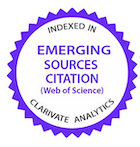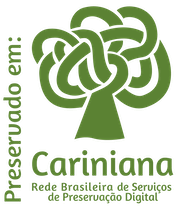Comportamento ingestivo e respostas fisiológicas de novilhos Nelore em diferentes condições de pastejo
DOI:
https://doi.org/10.5216/cab.v13i3.7132Palavras-chave:
pastagens, invasoras, freqüência cardíaca, locomoçãoResumo
Este trabalho teve o objetivo de avaliar o comportamento ingestivo e respostas fisiológicas de novilhos Nelore em diferentes condições de pastejo. Foram utilizados cinco novilhos da raça Nelore pesando em média 390,78 ± 14 kg de PV, distribuídos em cinco tratamentos experimentais: pasto limpo sem fornecimento de suplemento concentrado (PLSC), pasto sujo sem fornecimento de suplemento concentrado (PSSC), pasto limpo com fornecimento de suplemento concentrado (PLCC), pasto sujo com fornecimento de suplemento concentrado (PSCC) e livre acesso aos pastos sem fornecimento de suplemento concentrado (LAPSC). Utilizou-se delineamento experimental em quadrado latino 5 x 5. O comportamento ingestivo dos animais foi mensurado por meio de observação visual no final de cada período experimental em intervalos de dez minutos, durante 24 horas, e as variáveis fisiológicas avaliadas foram temperatura retal, frequência respiratória e frequência cardíaca. As respostas fisiológicas dos animais não foram influenciadas pelos tratamentos. O número de passos realizados pelos animais mantidos nos tratamentos PLSC (6,08 passos/min) e PLCC (5,62 passos/min) foram significativamente menores que nos tratamentos PSSC (16,84 passos/min) e PSCC (14,58 passos/min), demonstrando maior atividade de locomoção nos animais nos piquetes com invasoras.
PALAVRAS-CHAVE: frequência cardíaca; invasoras; locomoção; pastagens.
Downloads
Downloads
Publicado
Como Citar
Edição
Seção
Licença
Copyright (c) 2012 Ciência Animal Brasileira / Brazilian Animal Science

Este trabalho está licenciado sob uma licença Creative Commons Attribution 4.0 International License.
Autores que publicam nesta revista concordam com os seguintes termos:
- Autores mantém os direitos autorais e concedem à revista o direito de primeira publicação, com o trabalho simultaneamente licenciado sob a Licença Creative Commons Attribution que permite o compartilhamento do trabalho com reconhecimento da autoria e publicação inicial nesta revista.
- Autores têm autorização para assumir contratos adicionais separadamente, para distribuição não-exclusiva da versão do trabalho publicada nesta revista (ex.: publicar em repositório institucional ou como capítulo de livro), com reconhecimento de autoria e publicação inicial nesta revista.
- Autores têm permissão e são estimulados a publicar e distribuir seu trabalho online (ex.: em repositórios institucionais ou na sua página pessoal) a qualquer ponto antes ou durante o processo editorial, já que isso pode gerar alterações produtivas, bem como aumentar o impacto e a citação do trabalho publicado (Veja O Efeito do Acesso Livre).






























